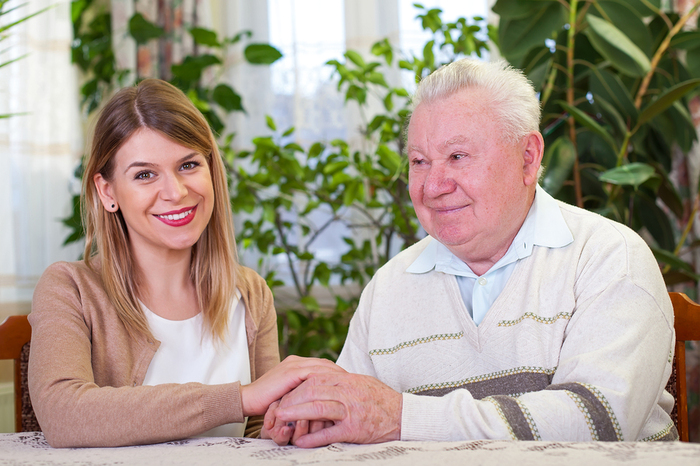
Seniors are particularly susceptible to pneumonia due to a number of factors. Unfortunately, they’re also more vulnerable to complications from pneumonia, including pleurisy. If your aging loved one has recently been diagnosed with this painful condition due to pneumonia or another underlying cause, this guide can help you understand the ailment while helping to provide better care.
What is Pleurisy?
Also called pleuritis, pleurisy is inflammation of the thin layers of pleura (tissue) lining the lungs and chest wall. The term for the space between these layers is the “pleural cavity.” In healthy people, this cavity contains enough lubricating fluid to allow the layers to slide over each during breathing. When the pleura swell, however, this space lessens causing the layers to rub together. The result is chest pain known as pleuritic pain.
Pleurisy can be caused by viral and bacterial infections of the lower respiratory system. Other causes include pneumothorax (a hole in the lung), chest injury, tuberculosis, or tumors in the pleural. Rheumatoid arthritis, lupus, sickle cell crisis, pancreatitis, and pulmonary embolism can also leave to the development of pleurisy, as can complications from heart surgery.
Symptoms of Pleurisy
The major symptoms of pleurisy include chest pain and shortness of breath. The onset is usually sudden, and described by patients as “stabbing pain” that escalates with breathing. It may occur only on one side of the chest, and may extend to the belly or shoulder.
In addition to being exacerbated by breathing, it’s can also be made worse by coughing, sneezing and sudden movements.
Diagnosing, Treating and Preventing Pleurisy
Because pleurisy can be caused by many different health problems, your aging loved one’s doctor will likely try to identify the cause of the inflammation by doing a physical exam and testing, such as x-rays, ultrasound, CT scans, electrocardiograms, and blood tests.
Treatment depends on the cause. For example, while antibiotics can clear up a bacterial infection, anticoagulants may be used if a pulmonary embolism is determined to be present. Certain cases of pleural effusion may require a medical procedure to either drain fluid in the chest and/or prevent additional fluid buildup.
The good news? In most cases, pleurisy leads to no long-term problems. Additionally, while pleurisy prevention depends on its causes, there are some ways to reduce your aging loved one’s risk of developing pleurisy, including maintaining a healthy lifestyle, keeping conditions known to cause pleurisy under control, regular vaccinations for pneumonia and the flu, and smoking cessation.
Managing Pleurisy
Pleurisy usually lasts for no more than two weeks. In rare cases, it can be contagious. It can also be extremely uncomfortable. For pleurisy-related pain, doctors usually recommend aspirin, ibuprofen, or an alternate NSAID. Severe cases may call for prescription pain or cough medicine. Additionally, many people suffering from pleurisy feel better when they lie on their painful side with a pillow pressed against it.

And while caregivers can't make the pain go away, their efforts can still be invaluable when it comes to helping aging loved ones feel better. Advises the Honor Society of Nursing (STTI), “The main thing for you to understand about pleurisy is that it is painful. Your loved one may be in constant pain, possibly even severe pain that prevents him or her from performing simple daily activities. Just be there to listen and support as well as to offer any assistance your friend or family member who has pleurisy may need.”
mmLearn.org offers a large library of free videos for caregivers of older adults, covering topics pertaining to senior care. Whether you are a healthcare professional or a family caregiver, if you are caring for an older adult we know that you will find mmLearn.org an essential learning and guidance tool for all of your caregiver training needs. For more free caregiver training resources, visit our free online caregiver video library.

